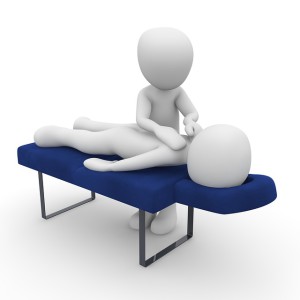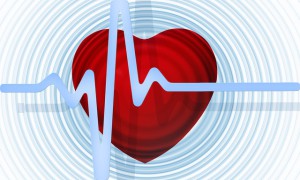- Integrated Body Therapies
Christine A. Ruppert, LMT5712 Stillwell Road
Rockville, MD 20851301-231-8695
Healthy Living
Exercise – bigger brains – Think on that!
Regular exercise may shrink waistlines, but a long-term study suggests it
increases brain volume and lowers the risk of age-related cognitive decline.
Researchers followed 1,583 middle-aged men and women with no personal
history of dementia or heart disease over the course of two decades. At the
start of the study, participants underwent an MRI and took a physical fitness
test on a treadmill, during which their heart rate and blood pressure were also
monitored. The procedures were repeated 20 years later, and after factoring out
people who had developed heart disease and high blood pressure, the research-
ers found that the ones who kept in shape were more likely to have larger
brains. On the other hand, poorly conditioned participants had lost gray matter.
“Our brains shrink as we age, and this atrophy is related to cognitive decline
and increased risk for dementia,” study author Nicole Spartano of Boston
University tells CBSNews.com. “This study suggests that people with poor
fitness have accelerated brain aging.”
—The WEEK
March 3, 2016
The Effects of Muscle Tension and How Massage Can Help
 Many people brush off muscle tension as being nothing more than the body’s response to stress, assuming it has no real impact on their health. But the truth is that muscle tension, especially chronic cases that persist for weeks or months on end, can affect the body in more ways than just one. continue reading
Many people brush off muscle tension as being nothing more than the body’s response to stress, assuming it has no real impact on their health. But the truth is that muscle tension, especially chronic cases that persist for weeks or months on end, can affect the body in more ways than just one. continue reading
Improve Your Circulation With Massage Therapy
 There are a number of reasons why poor circulation happens. Common health issues that Americans face like obesity, diabetes, heart conditions and arterial issues can all lead to bad circulation. Our circulatory system is designed to transport oxygen-rich blood throughout the body, supplying it with the nutrients it needs to remain healthy. When blood becomes stagnant, however, certain problems may arise. continue reading
There are a number of reasons why poor circulation happens. Common health issues that Americans face like obesity, diabetes, heart conditions and arterial issues can all lead to bad circulation. Our circulatory system is designed to transport oxygen-rich blood throughout the body, supplying it with the nutrients it needs to remain healthy. When blood becomes stagnant, however, certain problems may arise. continue reading
KEEP YOUR HEART SWEET . . . .
New research shows that massage therapy is good (make that GREAT) for keeping your heart healthy. Massage can reduce blood pressure, and can decrease pain and anxiety for those already experiencing heart issues. Excess levels of negative stress, whether physical or emotional, can exacerbate symptoms of heart disease. Of course, relieving stress is one of the greatest benefits of massage. Check out this article for more info, take from it what you like, and feel free to pass it on to anyone you know who may be challenged with heart disease.
Massage as Education
Someone recently asked me if, in addition to attending classes in massage therapy, I also receive massage. My answer: YES! ABSOLUTELY! NO QUESTION ABOUT IT!
My very first massage was a life-changing event for me. Right then and there, I heard my inner voice (a wise old soul) tell me that this was “what I was meant to do”. Within months, I enrolled in a massage therapy training program, and embarked on a fascinating, yet previously unimagined, journey into this new phase of my life. This was some 30+ years ago.
As we learned the nuts and bolts of massage therapy, we practiced on each other and I received various forms of touch at least twice weekly. I made a commitment to myself that from then on I would continue getting massage regularly. Since I graduated, I have carved out a time for myself weekly, biweekly, or at least once a month for my massage, and I give it priority in my schedule.
Massage has always been a learning experience for me, whether I am giving or receiving it. Not only does it relieve my aches and pains and coax me into being centered and relaxed, massage also deepens my awareness and understanding of my self and my body.
During my sessions, I am attentive to how each stroke or technique, along with how and where it is applied, may affect me at that particular time. I notice how my therapist puts the parts of each session together to achieve a particular effect. This enables me to understand and imagine how clients may experience, in their own body, the various forms of touch I use. My self-observation, along with the client’s communication (both verbal and nonverbal) guides me toward choosing massage approaches and adaptations that will best serve this person, and will encourage a healing and beneficial experience for them.
In summary, while I have been privileged to study with many innovators and masters of specialized bodywork programs over the years, receiving massage itself is an education for me. I consider it equally important as any classroom instruction I may engage in. As my body ages, I find it increasingly vital and helpful to receive massage therapy, as it provides me with greater physical ease and awareness, and a growing appreciation for my self in this/my body
Fewer $$$ Better Care
https://www.ibtmassagetherapy.com/?p=17
Massage Therapy Reduces Health Care Costs
Research conducted by John Dunham & Associates (JDA), a leader in the field of tax
and regulatory economic impact studies, found that integrating massage therapy into
medical care can reduce health care costs. The American Massage Therapy Association
(AMTA) has released the research to reinforce the relationship between massage
therapy and costs of care.
Patient Savings
“The research findings indicate that integrating massage therapy into ongoing care has a positive outcome for patients and in many cases lowers health care costs,” said Jeff
Smoot, AMTA President. “The information in this study can help support a national
dialogue on the detailed cost effectiveness of massage therapy and provide a starting
point for conversations among patients and their health care providers.”
Significant Cumulative Savings
- When the total number of treatments is analyzed cumulatively across approximately 66 million outpatient services, the research indicates that private insurers could save as much as $4.55 billion in costs annually, if they were to cover massage therapy nationally.
-
For individuals, the benefits of massage therapy accrue when taken as part of a comprehensive treatment system, and the data indicate that visiting a massage therapist in place of additional hours at the hospital or doctor’s office, or substituting massage in place of some other treatment, is where the savings truly emerge.
-
A growing number of medical centers throughout the U.S. now fully integrate massage therapy into patient care, including the Mayo Clinic, MD Anderson Cancer Center, Duke Integrative Medicine program, Cleveland Clinic and the University of Pittsburgh Cancer Institute.
Economic Impact of Massage Therapy
The economic impact of massage therapy is significant in the U.S. It is estimated to be
an $11.7 billion industry in 2014. U.S. consumers continue to seek out professional
massage to support their health and wellness goals. According to the annual 2014
American Massage Therapy Association Consumer Survey, between July 2013 and July
2014, roughly 32.6 million adult Americans (15 percent) had a professional massage at
least once.
